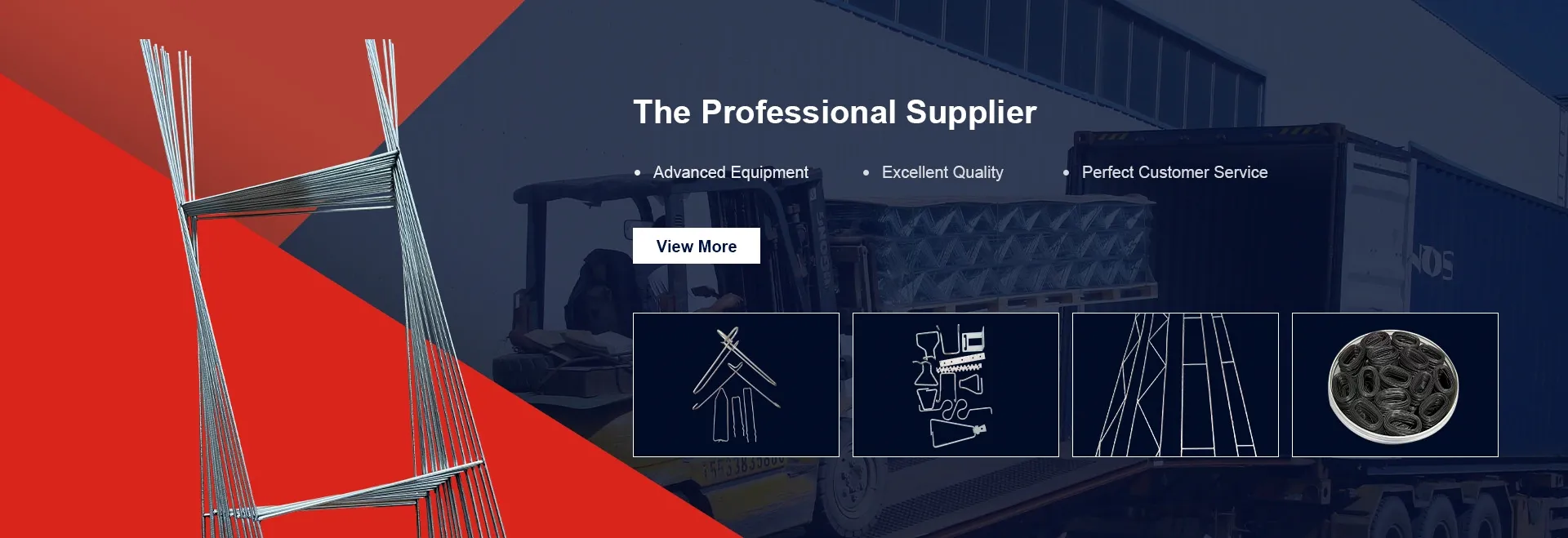
- Mobile Phone
- +8613931874955
- sales@cntcmetal.com
Understanding the Functionality and Applications of Closed Coil Springs in Engineering
Understanding Closed Coil Springs Design, Applications, and Benefits
Closed coil springs, commonly referred to as helical springs, are a type of mechanical spring that is designed to compress or extend depending on the applied load. Unlike open coil springs, which have spaces between their coils, closed coil springs possess tightly wound coils that are in contact with each other. This unique structure gives them distinctive properties that offer several benefits across various applications.
Design and Structure
Closed coil springs are typically made from high-quality materials such as steel, stainless steel, or other alloys, allowing them to endure significant stress while maintaining their shape and functionality. The design of a closed coil spring is defined by several parameters, including the wire diameter, coil diameter, number of active coils, and coil pitch. Each of these elements influences the mechanical properties of the spring, including its stiffness, load-bearing capacity, and fatigue resistance.
One of the critical features of closed coil springs is their ability to store energy efficiently. When a load is applied, the coils compress, storing potential energy within the material of the spring. This energy is released when the load is removed, allowing the spring to return to its original shape. The rate at which the spring compresses and decompresses is influenced by the spring constant, which is determined during the design phase.
Applications of Closed Coil Springs
The versatility of closed coil springs allows them to be used in a wide range of applications. One of the most common uses is in automotive suspension systems, where they play a vital role in providing a smooth ride by absorbing shocks from the road. In industrial machinery, closed coil springs are used to maintain tension in belts and chains or to return components to their original position after being actuated.
In consumer products, closed coil springs are found in various devices, from pens and mattresses to toys and appliances. They are also essential in electronics, acting as connectors or supports for sensitive components. Medical devices often incorporate closed coil springs to ensure accurate and reliable operation in tools such as surgical instruments or diagnostic equipment.
Benefits of Closed Coil Springs
closed coil spring

Closed coil springs offer several advantages that make them a preferred choice for design engineers and manufacturers.
1. Space Efficiency Due to their compact nature, closed coil springs occupy less space compared to open coil springs. This feature is particularly beneficial in applications where space is limited, such as in compact machinery or tight-fitting assemblies.
2. Smooth Operation The continuous contact between the coils reduces friction during compression and extension, allowing for smoother operation. This is especially important in applications where precise movement is critical.
3. Greater Energy Storage The design of closed coil springs enables them to store more potential energy compared to other spring types, making them suitable for applications that require significant load-bearing capacity without excessive size.
4. Durability and Longevity When designed and manufactured with quality materials, closed coil springs boast high fatigue resistance. This means they can withstand repeated loading cycles without degradation, ensuring a longer lifespan and reduced maintenance needs.
5. Customizability Closed coil springs can be customized to meet specific requirements, including different stiffness levels, sizes, and load capacities. This flexibility allows designers to tailor springs to fit unique application needs.
Conclusion
In summary, closed coil springs are vital components that serve a multitude of functions across various industries. Their design, efficiency, and adaptability offer significant benefits, making them an integral part of countless applications—from automotive to consumer products. As technology continues to advance, closed coil springs will likely evolve further, enhancing their performance and expanding their use in innovative ways. Understanding the mechanics and applications of closed coil springs is essential for engineers and designers looking to optimize their projects and products.
share:
-
Wall Ties for Concrete: Invisible Guardians of Building Structural StabilityNewsAug.08,2025
-
Timber Frame Wall Ties: Stable Bonds for Load TransmissionNewsAug.08,2025
-
Stainless Steel Woven Wire Mesh: A versatile material from boundary protection to functional supportNewsAug.08,2025
-
Powder Coat Coil Springs: Creating peace of mind and reliability with sturdy protectionNewsAug.08,2025
-
Floor Standing Sign Holder: A Powerful Assistant for Flexible DisplayNewsAug.08,2025
-
Binding Iron Wire: An Invisible Bond for Building StabilityNewsAug.08,2025
-
Yard Sign Stakes: Reliable Guardians of Outdoor SignsNewsAug.04,2025



















